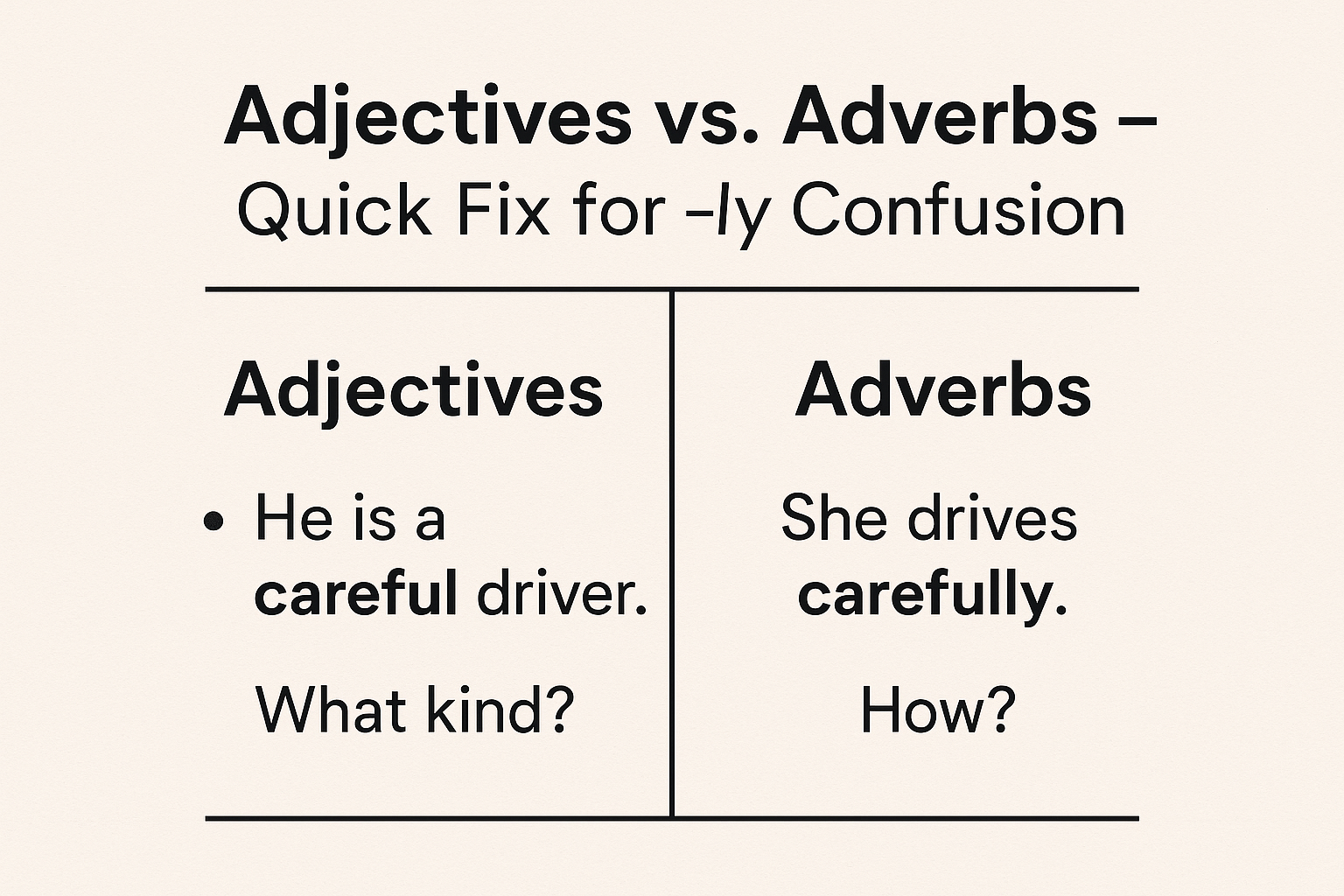Adjectives vs. Adverbs – Quick Fix for -ly Confusion-Grammar Puzzle Solved-(47)
Many learners confuse adjectives and adverbs, especially when words end in -ly. This confusion often causes grammar mistakes in both speech and writing. Yet the adjectives vs adverbs grammar rule is clear and easy to follow. It helps you describe actions and things properly.
Adjectives describe nouns. They tell us about people, places, animals, or objects.
✅ She gave a brilliant speech.
✅ It was a terrible storm.
✅ He wore a red shirt.
✅ They live in a quiet village.
Here, “brilliant,” “terrible,” “red,” and “quiet” describe the nouns speech, storm, shirt, and village.
Adverbs describe verbs, adjectives, or other adverbs. They answer how, when, where, or to what extent.
✅ She spoke brilliantly.
✅ The storm grew terribly strong.
✅ He drives dangerously.
✅ They sing beautifully.
In each case, the adverb tells how the action happens or how strong the adjective is.
A frequent error is using an adjective where an adverb is needed:
❌ He plays quick.
✅ He plays quickly.
❌ Drive safe.
✅ Drive safely.
❌ She runs effortless.
✅ She runs effortlessly.
However, not all adverbs end in -ly. Some are irregular:
✅ He ran fast.
✅ She arrived late.
✅ He works hard.
✅ She dances well.
Also, some verbs (feel, look, seem, smell) are linking verbs. They take adjectives, not adverbs:
✅ He feels bad.
✅ The cake smells delicious.
✅ She looks tired.
✅ This seems important.
To apply the rule, ask: What does the word describe? If it describes a noun, use an adjective. If it describes a verb or another modifier, use an adverb. With practice, the difference becomes natural.

Less or Fewer: https://grammarpuzzlesolved.englishlitnotes.com/less-or-fewer-grammar-rule/
English Literature: https://englishlitnotes.com/
For grammar lessons, visit ChatGPT to explore the platform and interact with the AI: https://chat.openai.com
Discover more from Grammar Puzzle Solved by Naeem Ullah Butt
Subscribe to get the latest posts sent to your email.